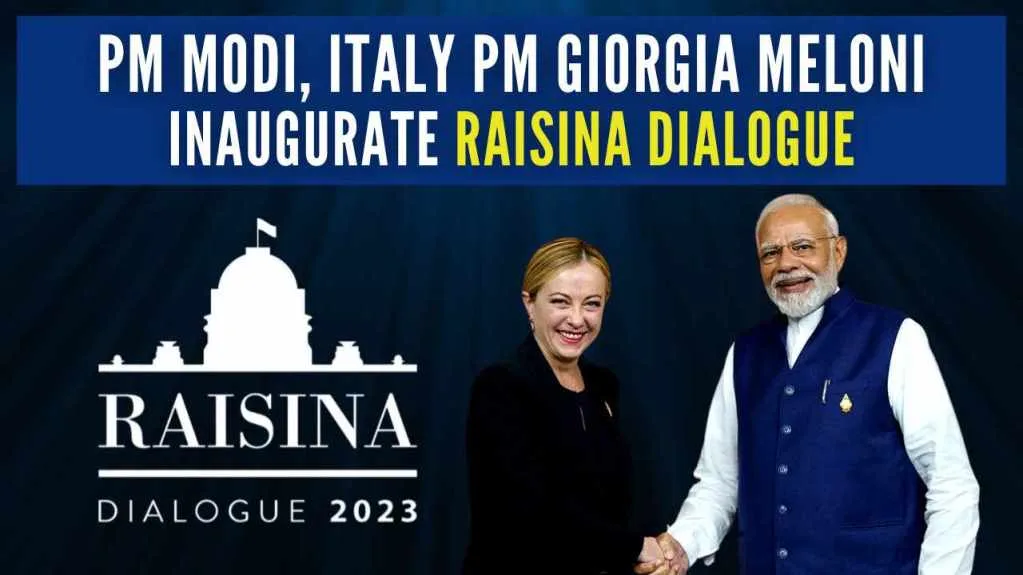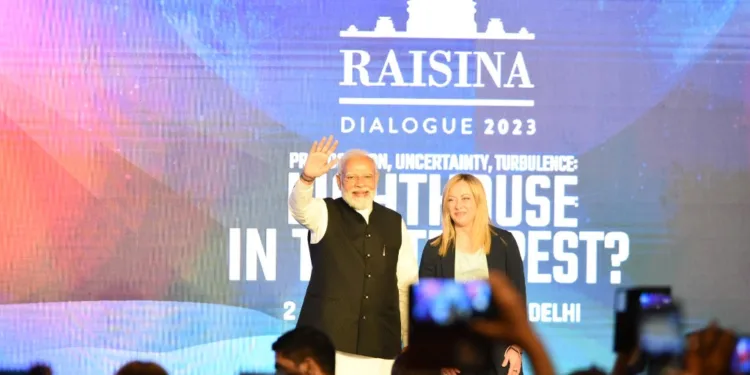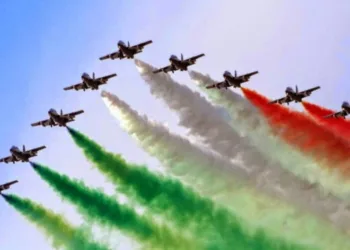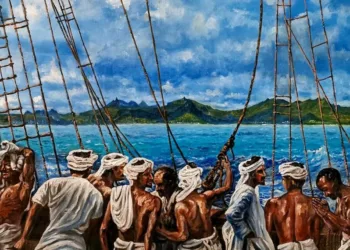BY RANANJAY ANAND
The Raisina Dialogue 2023 conference, inaugurated by the Indian and Italian PMs, brought together past and present heads of state, ministers, business leaders, academicians, and opinion-makers to discuss compelling issues around crises and threats regarding the global order
The theme of Raisina Dialogue 2023 — “Provocation, Uncertainty, Turbulence: Lighthouse In The Tempest?” — reflects the current global landscape marked by multiple challenges and disruptions. The world is facing an unprecedented set of challenges, including geopolitical rivalries, economic uncertainties, social upheavals, environmental crises, and technological disruptions. These challenges are provoking new conflicts, uncertainties, and turbulence that are shaking the foundations of the existing global order.
The theme acknowledges this tempestuous environment and seeks to explore ways to navigate it. The lighthouse metaphor is particularly apt — just as a lighthouse provides a beacon of light and guidance to ships in stormy seas, Raisina Dialogue 2023 aimed to proffer insight, ideas, and solutions to policymakers, businesses, and individuals navigating the turbulence of the global landscape.
Raisina Dialogue 2023 was attended by over 1,500 delegates from a myriad of countries, including heads of state, ministers, business leaders, academicians, and opinion-makers. The conference was jointly inaugurated by the prime ministers of India and Italy, Narendra Modi and Giorgia Meloni, respectively. It was held immediately after the G20 foreign ministers’ meeting.
The three-day conference featured a series of panel discussions and keynote addresses by eminent speakers from around the world, including Meloni, EU Foreign Minister Josep Borrell, the foreign ministers of the four Quad states (Australia, India, Japan, and the United States), Russian Foreign Minister Sergei Lavrov, former British Prime Minister Tony Blair, and the foreign ministers of Mexico, Indonesia, Brazil, South Africa, among many more.
The discussions covered a wide range of topics, including the changing dynamics of global power, the impact of emerging technologies, the future of multilateralism, and the role of India in the world as the powerful voice of the Global South.
The prominent topics that elaborated the basic theme of the conference included the Quad and Indo-Pacific security, energy security, food security, counter-terrorism, liberalism and democracy, UN reform, geopolitical developments in the Middle East, the debt crisis, various facets of
technology, climate change, and other issues. However, the most prominent issues that dominated the event were multilateralism and countering China in the Indo- Pacific region and elsewhere, and also the concerns of the Global South. Predictably, the Ukraine war was discussed
in various sessions given its dominance in geopolitical consciousness and the serious concerns about global peace. However, opinions varied on this issue. The Western panellists brought up and condemned the Russian invasion at every possible opportunity, irrespective of the “security”
related issues being discussed, while the panellists from the Global South were noticeably reluctant to blame Russia though some of them did deplore the war’s impact on their countries’ economies and well-being.

What is the Raisina Dialogue?
The Raisina Dialogue is an annual flagship conference on geopolitics and geo-economics, organised by the Ministry of External Affairs, Government of India, in collaboration with the Observer Research Foundation (ORF), a leading think tank based in New Delhi. The Raisina Dialogue was launched in 2016 with the aim of providing a platform for bringing together leading thinkers, leaders, policymakers, scholars, and experts from around the world to discuss issues of global significance. Over the years, the dialogue has become an important platform for exchanging ideas and promoting dialogue on issues such as security, development, and governance. The conference has since grown in stature and reputation, and is now recognised as one of the premier international conferences on strategic affairs. The Raisina Dialogue is unique in that it brings together a diverse range of participants, including political leaders, scholars, journalists, business leaders, and civil society representatives.
Highlights of Raisina Dialogue 2023
Raisina Dialogue 2023 covered a wide range of themes and topics, including geopolitics, geo-economics, security, technology, sustainability, and governance. Some of the key themes and highlights were:
Geopolitics: The conference featured several sessions on geopolitical issues, including the evolving global order, regional dynamics in Asia, the Indo-Pacific, and the Middle East, and the role of great powers in shaping the world. The discussions highlighted the growing assertiveness of China and Russia, the shifting balance of power in Asia, the challenges to the liberal international order, and the need for greater cooperation and
coordination among nations to address common challenges.
Geo-economics: The conference also focused on economic issues, including the impact of digitalisation and technological disruptions on the global economy, the role of trade and investment in shaping economic relations, and the challenges of sustainability and inclusiveness in the global economic system. The discussions highlighted the need for a rules-based and inclusive economic order that balances the interests of different stakeholders and addresses the concerns of the marginalised and vulnerable.
Security: The conference also addressed security issues, including the growing threat of terrorism, cyber security, and the challenges of non-traditional security threats such as pandemics and climate change. The discussions highlighted the need for greater cooperation and collaboration among nations to address these challenges and the importance of building resilient and adaptive security systems. Topics included the situation in the Middle East, the Korean peninsula, and the Indo-Pacific region.
Technology: The conference also focused on the impact of technology on society and the economy, including the opportunities and challenges
of digitalisation, artificial intelligence, and automation. The discussions highlighted the need for ethical and responsible use of technology and the importance of ensuring that the benefits of technological advancements are shared widely and equitably.
Multilateralism and Global Governance: Raisina Dialogue 2023 emphasised the need for multilateral cooperation to address global challenges.
Participants discussed ways to strengthen global governance mechanisms and institutions such as the United Nations.
Apart from the plenary sessions and panel discussions, the conference also featured several side events and networking opportunities. It provided a unique platform for participants to exchange ideas, forge partnerships, and explore new avenues of collaboration.
Raisina Dialogue 2023 reinforced India’s position as a key player in the global arena and its commitment to promoting dialogue and cooperation on issues of global significance. Specifically highlighted was India’s role as an influential bridge between the Global North and South.
The meet provided a valuable platform for countries to engage in strategic discussions on key geopolitical and economic issues facing the world. It highlighted the need for countries to work together to address the challenges posed by the altering global landscape, and the importance
of multilateralism and cooperation in promoting peace, security, and sustainable development. It also provided an opportunity for countries to explore opportunities for bilateral cooperation and several new initiatives and agreements were made on the sidelines.
Armenia Connects
Armenia, a small but strategically located country in the South Caucasus, has been in the news due to its ongoing conflict with Azerbaijan over the Nagorno- Karabakh region. The conflict, which dates back to the early 20th century, has been a bone of contention for several decades. In 2020, it escalated, leading to a brief but intense war that saw thousands of casualties and the displacement of hundreds of thousands of people.
Armenia’s participation in Raisina Dialogue 2023 provided an opportunity to discuss issues of regional and global importance. The South Caucasus region is strategically located at the crossroads of Europe and Asia, and its stability and security are critical for regional and global stability. Armenia can contribute vitally to discussions on regional cooperation, economic integration, and security.
The nation also got an opportunity to showcase its achievements in technology, innovation, and education. Armenia has emerged as a hub for startups and tech companies, and its educational institutions are known for their excellence in science, engineering, and mathematics.
Armenia’s participation can promote bilateral ties. India and Armenia share a long history of cultural and economic ties, and there is significant potential for cooperation in trade, tourism, and education.
Armenian representation was a mix of ministers, defence officials, businessmen and civil society delegates. Particularly noteworthy was a breakfast session titled “India-Armenia Dialogue”, co-hosted by APRI Armenia, a policy accelerator think tank based in Yerevan, Armenia. The delegation was comprised of policy analysts, businessmen, technology innovators and also the office bearers of the Indo-Armenian Friendship Society. The panellists discussed ongoing cooperation in defence and potential cooperation in trade, trade routes, space, technology, IT and so on.
Armenia’s participation in Raisina Dialogue 2023 was a step towards greater engagement and cooperation with the international community. It will hopefully result in better understanding of the challenges facing Armenia and other countries in the region, and development of new solutions and approaches to address these challenges.
(An alumnus of JNU, New Delhi, the writer is an entrepreneur with more than 20 years’ experience in international relations, consulting, media, IT, tourism, non-profits and start-ups.)








